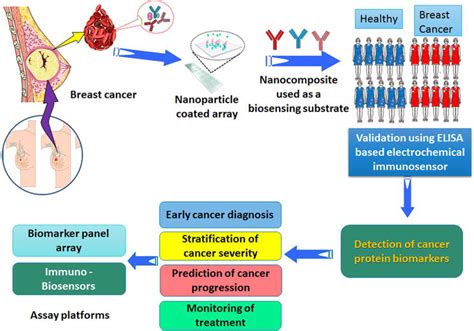Cancer remains a formidable adversary in the realm of healthcare, with early detection serving as a critical weapon in the fight against this relentless disease. A groundbreaking study investigating the role of blood proteins in predicting cancer development has sparked both optimism and skepticism among the medical community and the general public alike. The notion of identifying cancer markers in the bloodstream years before clinical symptoms manifest could revolutionize the landscape of cancer diagnosis, offering individuals a proactive approach to managing their health.
The comments from various individuals reflect a diverse range of perspectives on the potential implications of utilizing blood proteins for cancer screening. While some express hope in the discovery of early warning signals that could significantly impact survival rates and treatment outcomes, others raise valid concerns about the accuracy, cost-effectiveness, and psychological impact of such diagnostic methodologies. The delicate balance between the benefits of early detection and the risks of false positives and unnecessary interventions underscores the complexity of integrating cutting-edge technology into routine healthcare practices.
In the quest for precision medicine and personalized healthcare, the intersection of advancements in technology, medical research, and ethical considerations becomes increasingly paramount. The integration of innovative tools like blood protein analysis into mainstream healthcare requires meticulous validation, robust longitudinal studies, and clear guidelines for clinical implementation. The potential for improving patient outcomes through early cancer detection must be weighed against the possible pitfalls of overdiagnosis, overtreatment, and undue psychological distress.
Furthermore, the discourse surrounding the utilization of biomarker-based screenings for cancer underscores the broader societal and ethical considerations that govern healthcare policies and practices. From the intricacies of insurance coverage and access to healthcare services to the implications of genetic discrimination and privacy concerns related to medical data, the journey toward integrating cutting-edge diagnostics into routine medical care is rife with challenges and opportunities.
As we navigate the evolving landscape of cancer detection and treatment, it is essential to foster dialogue, transparency, and collaborative efforts among healthcare providers, researchers, policymakers, and patients. The road to effective cancer prevention and management hinges not only on scientific breakthroughs but also on the ethical, social, and economic dimensions that shape the healthcare ecosystem. By embracing a multidisciplinary approach and embracing evidence-based practices, we can strive towards a future where early cancer warning systems empower individuals to take charge of their health and well-being.
The stories shared by individuals touched by cancer experiences underscore the human impact and urgency of advancements in early detection technologies. From poignant narratives of loss and personal struggles to accounts of hope, resilience, and medical progress, these testimonials illuminate the multifaceted nature of the cancer journey. Each voice contributes to the collective narrative of resilience, innovation, and compassion in the realm of healthcare, highlighting the interconnectedness of scientific progress and human experiences.
In conclusion, the potential of blood proteins to serve as harbingers of cancer heralds a new era in healthcare where proactive screening and personalized interventions hold the promise of transforming outcomes for individuals at risk of malignancies. As ongoing research continues to unravel the intricacies of cancer biology and early detection modalities, it is crucial to navigate the complexities of emerging technologies with a blend of scientific rigor, ethical consciousness, and patient-centered care. The horizon of healthcare holds both challenges and opportunities, and the journey towards harnessing the power of early cancer warning systems is a testament to the resilience, innovation, and collaborative spirit of the global healthcare community.


Leave a Reply